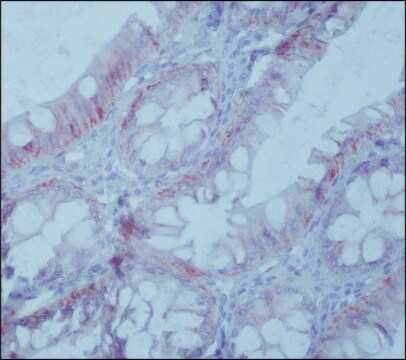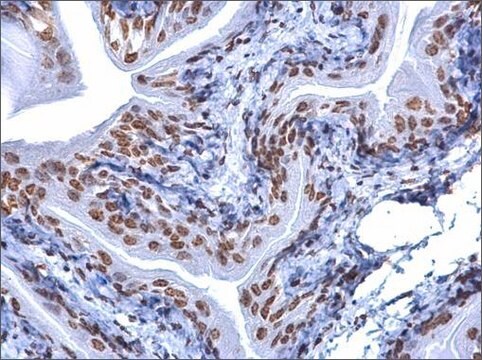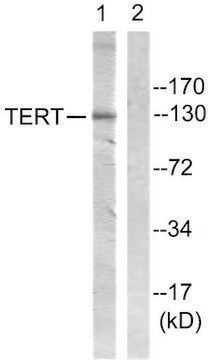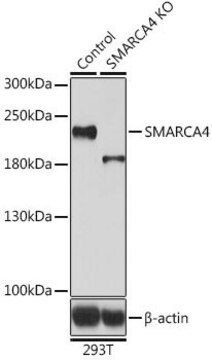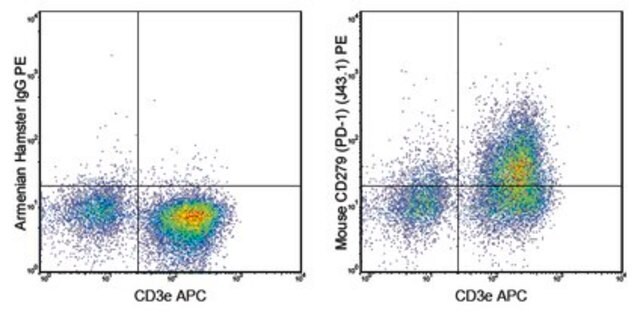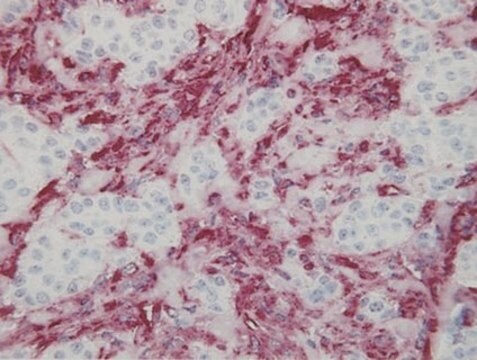SAB4200690
Anti-EpCAM antibody, Mouse monoclonal
clone Ber-EP4, hybridoma cell culture supernatant
別名:
Anti-CD326 antigen, Anti-EGP, Anti-Epithelial cell surface antigen, Anti-Epithelial glycoprotein, Anti-KS 1/4 antigen, Anti-KSA, Anti-Major gastrointestinal tumor-associated protein GA733-2, Anti-Tumor-associated calcium signal transducer 1
About This Item
おすすめの製品
由来生物
mouse
品質水準
結合体
unconjugated
抗体製品の状態
culture supernatant
抗体製品タイプ
primary antibodies
クローン
Ber-EP4, monoclonal
形状
buffered aqueous solution
化学種の反応性
human
テクニック
immunofluorescence: 1:500-1:1,000 using human breast adenocarcinoma MCF-7 cell line.
immunohistochemistry: 1:250-1:500 using heat-retrieved formalin-fixed, paraffin-embedded human colon carcinoma sections.
immunoprecipitation (IP): suitable
アイソタイプ
IgG1
UniProtアクセッション番号
輸送温度
dry ice
保管温度
−20°C
ターゲットの翻訳後修飾
unmodified
遺伝子情報
human ... EPCAM(4072)
詳細
免疫原
アプリケーション
- immunofluorescence
- immunohistochemistry
- immunoprecipitation
生物化学的/生理学的作用
物理的形状
免責事項
適切な製品が見つかりませんか。
製品選択ツール.をお試しください
保管分類コード
10 - Combustible liquids
WGK
WGK 1
引火点(°F)
Not applicable
引火点(℃)
Not applicable
適用法令
試験研究用途を考慮した関連法令を主に挙げております。化学物質以外については、一部の情報のみ提供しています。 製品を安全かつ合法的に使用することは、使用者の義務です。最新情報により修正される場合があります。WEBの反映には時間を要することがあるため、適宜SDSをご参照ください。
Jan Code
SAB4200690-BULK:
SAB4200690-100UL:
SAB4200690-VAR:
試験成績書(COA)
製品のロット番号・バッチ番号を入力して、試験成績書(COA) を検索できます。ロット番号・バッチ番号は、製品ラベルに「Lot」または「Batch」に続いて記載されています。
ライフサイエンス、有機合成、材料科学、クロマトグラフィー、分析など、あらゆる分野の研究に経験のあるメンバーがおります。.
製品に関するお問い合わせはこちら(テクニカルサービス)
